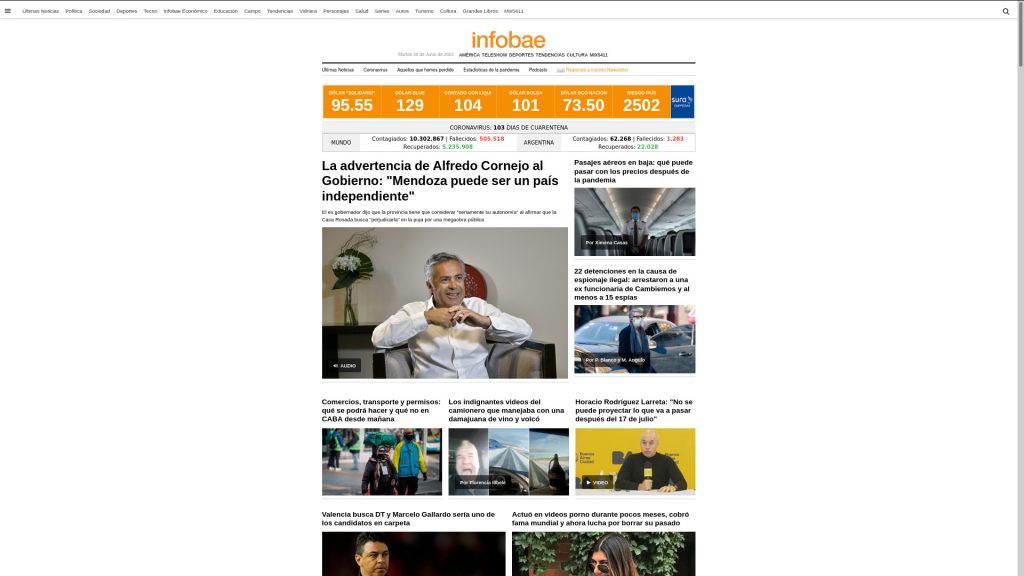2019 was a dark year for Free Software. Its enemies grow stronger every day, the once clear lines that show where are its allies are slowly begin to blur, but more importantly (and tragically), its leaders are falling from grace. And all of this is happening even when GNU/Linux is running everywhere, being used more than ever, and monsters of old like Windows or MS Office are suffering the rapid loss of relevance in the IT world. Their souls somehow manage to flee from their rotting carcasses and into their enemies bodies, and so today we have RedHat as a little software toy for IBM, while Mozilla keeps on losing user base behaving like if it were a for-profit company and Canonical keeps on working closely with Microsoft from years now. That list of fallen champions is long, and techrights is full of data about it. Yet, 2019 marks the year even our institutions are crumbling, with a quiet and polite Trovalds getting older faster than ever, and Stallman socially cancelled and out of its chair: not even the Linux Foundation or the Free Software Foundation are safe places for us anymore.
Many of us don’t know what to do about it, and so we struggle in uncertainty to find some solid ground where to take a breathe and think calmly for a moment about the future. But it all feels like quicksands everywhere, and standing still feels as dangerous as moving.
However, if one takes some distance from all the mess, this is actually some kind of worldwide trend about mostly anything you can imagine. The world itself is in crisis, and in every sphere of human praxis we walk between ghosts of the past and shadows of a gloomy future. It doesn’t matter if you’re a physics theorist or a plumber, you most likely gonna deal with the current crappy state of affairs around you: be it financial, sociologial, environmental, or any other kind. Few things are really ok this days.
There are several reasons why I start by saying all this. The first one that comes to mind: this is pandemic, and not really anybody’s fault (in the sense that is bigger than ANY of us). We’re just people, doing people stuff, and shit happens to us. Nobody of us has all the variables in its mind, or have all the time in the world to think about every move. That’s how life works, and what we do about it is keep on going: as simple and as difficult as that. So, in a way, we also know what to do with our loved movement, with or without the FSF, RMS, or whatever we decide to use tomorrow to mark the path.
But there’s another, more important reason to bring all that up. Last days, there were two guest articles published in techrights (“Plans that worked“, by figosdev, and “FSM out of the box“, by Jagadees) which I want to add a few things in response. And what I want to add is some political aspects of the Free Software movement for us all to discuss. Yet, I don’t want a point by point response, but a more conceptual one. I would like to give some perspective about the future of Free Software, from a political point of view. And that’s where the rest of the world comes in.
See, discussions about Free Software usually go over either technical aspects of software, technical aspects of FSF’s four freedoms, or technical aspects of licensing. Obviously those issues are tightly coupled themselves, and so it’s expected to happen. And I believe Jagadees was right when she/he said “we have to think from a user’s rights perspective and mobilise users of Free software”. However, I also believe she/he was wrong about the characterization of users rights, and I’m actually against her/his claim of “no need for new laws or regulations”. It’s important to explain why. And for that I’m gonna take a few detours. But we’ll be back on track later, I promise.
As said before, there’s crisis everywhere. The world is a mess. The status quo is crumbling no matter where you look at, and so everybody embraces their ideologies of old as lifeguard rafts in the middle of the ocean. So much is like that that even capitalism itself is taking lots of punches lately, and suddenly we have the ghost of socialism floating around the cities of even the most powerful countries in the world, as if the cold war had never truly ended. Some see this ghost as China and Rusia gets stronger and smarter, but others as capitalism grows tiresome day after day for whatever the reason. Seems that having no alternative system is not really helping to get any peace anywhere. And when somebody brings that up, with all the problems it carries, from the left or from the right there’s always some people happy to tell you with a smug and disapproval face: “It’s the economy, stupid”.
Here’s my answer to that people: “tell that to Chile”. Go on, take a look at what’s happening there, in that capitalist oasis created in the 80’s as example for the world. Their economy is great: at least from the macro indicators. And yet, 1.5 millon people go to the streets in a country of 15 million, because “fuck that, life sucks anyway, we had enough of this”. Leftist people tends to celebrate what’s happening in Chile this days. Then’s when I also say this: “tell that to Bolivia”, where they live the most groundbreaking economical achivements of their history, with non-interrupted growth for more than a decade, and all that under a socialist flag. Yet, no matter how prosperous it may be its economy or social investment, Bolivia falls under a coup like nothing, and hateful people fills the streets in a maniac racist and anticomunist spree. Then all stop smiling, and we can say: take a look at Brazil, what they did with the former presidents and what they have now; the same stuff was done in Paraguay years before. Take a look at Colombia, Nicaragua, Guatemala. Go check it out. Remember Maduro and Venezuela? Remember their imminent fall, with the US and the EU and the UN against them? They’re still there, while others have fallen. Try to explain what’s happening with your old-school economical tricks. Then you may say “well, that’s LATAM, that’s how third world works”. But if you go take a look at France, you find her full of conflict. Take a look at England, with all their brexit crap. Take a look at the extreme right-wing movements growing in France, Italy, Spain, or even the very taboo Germany. Is that the third world? And they’re not even the ones with their ex-reality-show-runner president ruling from Twitter like if the world were some kind of videogame! Have you not seen those videos of the skinny polar bears? Even the artics are a mess. And please, PLEASE, I beg you, let’s just not go to the Middle East or Africa…
My answer to that people is quite simple: “no, it’s politics, you god damn insensible brute”. It was never about any technical issue: not economical, not ideological, not sociological, not religious. It’s always a mix of it all, and much more than that. It involves everything that has remotely to do with people interacting with each other; which is the very basic definition of “politics”. Unless you’re nomad somehow, you live somewhere, and so even if you fart is a political issue. Hell… you’ll have that problem even if you’re not living anywhere! And that’s how modern life works. Whatever you do, the other is the limit. Which is a VERY problematic limit, as everyone is different; and we already tried all the tricks in the book to try to generalize people, without success.
Modern life also had to deal with its own inherited crap from ages before her. The discourse of method is one of those things. See, if you take a look around, everybody seems to be looking for a definitive way to mine some truth from reality that help them keep their sanity. Since Science was invented, everybody wanted a piece of its security and reliability. But that kind of truth is also what gives people faith, hope, and direction in life, so Science is really sexy. And so we HATE SO MUCH lies and being wrong in modern life: it make us feel powerless fools. However, modern life has lots of proven wrong ideas. Science itself has its own share of big bad crimes, and with all our achievements we’re still trying to figure out how to deal with each others. And guess what: there was no ultimate method for anything.
Ideologies are probably nothing but that: another instance of science ideals taken too far, mixed up with that old need of controlling others. They (the ideologies) are of course part of the problem. Yet their role of explaining how we should behave make them special. Today, we cannot escape to think if this or that is “good for the market”, or “good for the people”, or “good for the nation”, as if those where crucial parameters. And we’re now stuck in that when we think about society.
But enough random ramblings, let’s take from that and go back to Free Software. I remember once RMS saying that people usually asked him if Free Software movement were about left-wing or right-wing politics. And he answered this: “it actually has things of both”. Which is weird to think about in a polarized world. Yet, he was a weird man with weird ideas. In that same meeting, he explained to all of us present that our country (Argentina) was wrong about using a single unique ID for all of their citizens (“DNI”, “Documento Nacional de Identidad”, “National Identity Document”). It was really weird, as I used my DNI for my whole life, and none of us could imagine a life without it. Then he told us, whithout us asking: “I know for a fact it’s not necessary to have a single unique ID, because I come from a country that doesn’t have such thing: we use many IDs”. He explained us that the DNI was a tool that gave too much power to the state over us, which is a wrong thing in itself.
And that was unexpected: we were suddenly talking about the power we give to the state, in a meeting where everybody was asking if this or that distro was ok to use, or if this other software was good or bad. It wasn’t unexpected for my friends and I, as we were from an humanistic university and politics is very much what we deal with every day: but for other lots of people it was strange. RMS always knew, and obviously still knows, that Free Software Movement is a political movement before any other characteristic. And yet, even when my friends and I were no stranges to political debate, RMS words were still weird, and even kinda silly: he was trying to address Software Freedoms in the Universal Declaration of Human Rights, which by us was too much and actually ridiculous.
That was about 2009, maybe 2010. I myself always had all sorts of ridiculous political ideas, so I didn’t cared too much about that. But others did, and finding something ridiculous was important for them: they considered their activism a very serious thing, and so didn’t wanted to be looked at as silly crazy people. That alone caused distance from FSM and other movements there. Can you imagine trying to explain the importance of Free Software to people fighting against local hunger? We’re talking about a target people with barely access to clothes. And even speak to them about Human Rights from Free Software? Trust me, the polite ones just smile a little in disbelief and just walk away.
A decade later, the world is full of noise. Bad noise. And Stallman “silliness” is no longer funny. And so this decade finds us troubled about the future of FSM and what to do about it. Jagadees tells us to focus in users rights, and I fully agree. But there’s a problem: that “rights” thing… I don’t think that word means what you think it means, Jagadees. See, there are big operational differences between “freedoms” and “rights”: freedoms are practiced, while rights are enforced. And in modern life, the enforcers of rights are the States, and they do that by the body of local and international law. You don’t have any “right” regarding the four freedoms whithout the GPL working as expected; which is by itself also kind of a response to figosdev.
Rights are not the same as Freedoms. They may look alike, but they’re not the same. Here in LATAM we know the difference very well, as a result of our XX century history. Here, “freedom” means “free market”, and we have learned to hate that word. “Freedom” is written with glowing ink in the banners of neoliberalism militants here. Shitty people use that word here to justify hunger policies. That alone should be enough, but sadly is not all. Freedom’s also the very slogan of the other side of that coin: the guerrilla. All LATAM had their freedom fighters, battling oppression with militaristic tactics. I don’t exaggerate when I say “freedom” here may mean sorrow and despair. For us, the feeling over that word is the same as the one with any other lie in modern life: it makes us feel powerless and fools. And so we also have this tendency to give the state more power, so it can enforce our rights over the freedom of the people much more powerful than us. We don’t want freedoms, we want rights.
The State is our modern tool for real power. Neoliberalists say that’s the root of all of our problems, and we (as in “me”) anti-neoliberalism say otherwise. Those are two poles of an unsolved worldwide debate. One of several, but a very heated and central one today. And the very concept of “rights” is in the middle of it. But it wasn’t always about neoliberalism. Before it, “rights vs freedom” was in the very core of the cold war, and even before there were just two poles but three: fascism was also an option during WW2, and people discussed the same thing. XX century was a giant struggle about human nature that we’re still dealing with. The Universal Declaration of Human Rights came out of it, but just after two nuclear bombs, and not before. So, the only true certainty we’ve found so far is that any spark can spread a global fire, and so we beter handle politics with care: but other than that we’re kinda left to our instincts.
There’s a great conceptualization of it all in the videogame Civilization V. There, when you reach modernity, you are forced to choose (sic) one of three ideologies, all of which affect your game. But the ideologies doesn’t have the same name we know for them in the XX century: they’re called “Freedom” (for Capitalism), “Order” (for Socialism/Communism), and “Autocracy” (for Fascism). I’ve found this conceptualization to be amazingly helpful to explain many things on politics history, without having to end on the question of who was right or wrong. And I’ll make a little change to it: instead of “autocracy”, I’ll use the word “autonomy”.
See, as I’m telling you about our local sensibility to the idea of “freedom”, other cultures have their own sensibilities, and so their different priorities. Today fascism is a bad word, but the idea of having autonomy is not. In the same way, if you say “capitalism” or “communism”, it will most likely trigger somebody: but if you change it for “freedom” or “order”, it reeeeealy make things smoother to talk about.
As I was telling figosdev in a comment to his article, I believe Free Software Movement is entering the main stage of world politics, as other movements have done before: gender, race, environmentalism, animal rights, etc. And so FSM deals now with this kind of very, very complex issues: they’re, at the same time, historical, political, and philosophical issues, all mixed together. Then add local culture to that and see what happens. That’s where words matters.
So back to Free Software, the whole systemd debate, for example, calls for an autonomy question, much more than order (as systemd and the distros has their rules of govern and core principles working fine) or freedom (which is the very deal FSF and RMS are failing to address on systemd, given that “is free software, and so is ethical”). Or the old “freedom” issue regarding what can and cannot be done with software: “if I’m forced to share my modified code, how’s that freedom?”; some acceptions of the concept may not be compatible with others, and it has very much to do with your political priorities (market economy over or under social development economy). And ethics is made of those not-so-solid principles.
And here we get to the point where it all crosses with science. That “truth method” thing… that’s not how society, and thus politics, works. We’re sick (as in disease) with the idea of knowing the very true concept behind what’s going on, and that’s how we turn everything ethical into ideological. “Systemd is an attack on user freedoms!”, we say. Well… maybe. I personally hate the systemd ecosystem. But if asked politically about it, I would answer the same RMS aswered about “left or right”: “it’s a little bit of both”. It depends of how you look at it.
Going on with this ideological “left or right” metaphor, I also look at systemd with the autonomy and order lenses, not just the freedom one. Thus, I hate it, but also can’t blame FSF or RMS for not bashing it, as they’re freedom people. This is important for the figosdev article. She/He also is a freedom person, but she/he hates systemd, and so she/he makes systemd a freedom afair: that makes her/him clash with the FSF, with the question “who’s really protecting freedom”; which in reality means “what does freedom really means”, and it’s the very thing I question in this article.
Politics works different from idealized science. The latter is supposed to give you the tools to understand the universe and predict it, with the collateral damage of implying that anybody doing absolutely anything other than what’s in the theory is an ignorant fool or just a bad person (even NON-person). That’s clearly a proven idealization, used in practice to turn scientific discourse into political power. Yet, science (as well as other powers, as the one of the state and the one of the market) had to be put eventually on a leash in XX century, and that leash was called Human Rights. Why then there’s still ideological debates working the same way, as if “the true truth” about people were already there and anybody denying it is an enemy? That’s the ideological dynamics, and also what happens with most of our political discussions. That leads to internal struggle and fracture, which our true enemies (and they DO exist) feast on.
Other movements, like gender or race, have learned to convive with different strategies (and thus different ethics), making a huge heterogeneous movement with real and transforming power. Today we all have to watch our words before talking publicly about gender or race, and feel the constant shift of our race and gender privileges. Knowing that this is an annoying issue for many, let me clarify: I’m not saying that’s neccesary a good thing, but a REAL thing. That’s real political power, which is something FSM needs in order to operate (much more than money, as figosdev’s “show me results” claim), and so we should take a look at how those movements achieved that.
But then, there’s Jagadees calling for politics perspective in FSM, paying attention to users rights, but also telling us “we don’t need more regulation”. Careful there: there’s hardly any freedom without regulation. Many freedoms are just contextual stuff you can do because nobody’s watching you do it (like copying and cracking privative software), but that’s hardly a right in itself. A software user is subject of rights over that software (and viceversa) just as there are laws and regulation about it (like the licenses). Rights are not about doing it when nobody’s looking at you, but exactly the opposite: rights play a role when anybody can watch you do it (spacially when the state watches it). And many, many rights, as well as freedoms, may and do conflict with each other, so there’s always political struggle around them (that’s for you, figosdev).
You Jagadees say “the laws of software freedom are already there”, but you’re wrong about that. First of all, there are many new laws constantly appearing because society changes, and you’re wrong if you think current conceptual tools to handle software freedom are going to be all-terrain and forever. That’s one thing. But also, what you have is principles, and laws are a different thing entirely. Scientific laws are absolute explanations of how reality works, unbreakable no matter what you think about them, and may only change when there are proven exceptions to it. Their role is to be the foundation for present and future techonological development. Society laws are what the states can enforce over people, and thus what people can ask the states to enforce. Their role is to be the foundation for present and future social development. None of that is what software freedom has.
Yet, it’s close to it. It has the GPL, and other licenses, which operates under the social law. It has the four freedoms, which operates as theorical principles for explaining a possible stable relationship with a whole deal of different social and technical software phenomenons. However, if you take a look at figosdev’s article, you can see all those tools are being debated as insufficient or even outdated, in the face of what changing reality and society has to say about software freedom.
Also, you Jagadees say “they are not building their own ethical energy companies or ethical drug companies or teaching people how to make drugs: they are politically acting for the system to change; that is the human way to do things”. But you’re missing the point that, preciselly, that very political acting changes society by new regulations, and also they actually DO create their own ethical energy companies and drug companies. Here in Argentina we have laws forcing medics to proscribe the generic drug name (and not some laboratory commercial brand name for a drug), so people can access more economic drugs made by local laboratories without having to learn either medicine or chemistry for that. And I myself studied robotics in a public and free (as in “free beer”) institution where they also teach “alternate energy” as a technical field: both things possible because of our public health and education state policies and laws, wich are the proud result of generations of people fighting for their rights against all kind of powers.
I believe both of you are missing something. You’re both dealing, in your very own way, with how to deal with people’s rights, which ultimately brings core ethical problems about what it means to be human. You’re no fools in this, as (and I believe I’ve said enough about that) the whole world deals with those questions since no less than 150 years ago. You’re both living the right ideas for the right age. But I believe your relationship with the idea of freedom is constantly getting in the way. I feel this because of my experience with RMS, by which I can tell now he didn’t missed it a whole decade ago: the Universal Declaration of Human Rights.
You see, Human Rights refer to the very human condition. It is so much like that, that even states or the very Science itself are politically forced to lower their eyes and say “yes sir, sorry sir” under the presence of human rights, or they’re otherwise criminals. Rights are about enforcement. But also, about what it means to be human. If you take a look at the UDoHR, you’ll find there many capitalist things like right to commerce, but also many socialist things like right to having a house or education or healthcare. As RMS said about FMS: “a little bit of both”. Because they were exactly about trying to deal with the human condition with something better than nuclear bombs (and please take note: that’s not an exaggeration). The world was in a mess objectively without precedent. And thus everybody agreed the response had to be political, because anything else is worst.
Human Rights are constantly violated everywhere. But that’s also true with any other social law. It’s not about being unbreakable, but about what you can reclaim to a legit greater power in case of it being broken. And that’s not what the four freedoms do (but maybe the GPL).
Jagadees calls for users rights. I’ve already argued there’s not such thing other than the licences. In fact, when the case appears, it’s usually stated as CONSUMMER rights, and not “user”. But Human Rights also cover a huge deal of mixed situations the four freedoms can’t address by themselves. For example, the whole systemd debate, as well as many other situations in the IT field, could be very well analized under the lenses of LABOR rights. Think about the consecuences over our day to day labor basis of those constant programmed obsolescence and forced corporate changes in software: we deal with them by constantly being learning in order to be up to date and keep doing our jobs (which we do because we’re workers and not because we can happily choose any other life whenever we like) by using our non-work-related time that then we don’t use to be with our families or for whatever other reasons. That’s close to a form of slavery, and it’s very much pushed through our throats by force. How many changes were the last decade on web development, even when 15 years old tech keeps working fine but newer tech doesn’t work well on older hardware? That’s not “progress”. How is it that some enterprises can push the idea of dropping x86 support because “is old”, yet we have entire countries (like mine) full of x86 hardware working great? We suddenly have to change our working tools, because somebody else and completely out of any regulation says so. Don’t we IT workers have anything to say in those kind of affairs?
Of course we do. We actually do speak about it. But the legal, ethical, historical, and social context for justifying our words rarely is the UDoHR. The debates usually goes from ideological points of view such as “innovation” vs “legacy”, “conservatism” vs “vanguard”, defenders of X technical principle/dogma versus Y other (which could be stuff like object oriented vs functional), and technical stuff like that. Last time I’ve tried to debate an unnecesary change in software methodology and tools in my work, when I tried to explain the importance of being conservative in the tech we use, a guy with about 15 years less than me tried to argue about the importance of pure functions. That’s just too much distance between the two discourses. Linus ranted about quality, but he also had strong position on backwards compatibility and encapsulation (“we don’t break userspace”), two positions that could very well be called “conservative”. What would happen with linux kernel without that conservatism in place? What could the 4 freedoms do to protect us from the nasty consequences of such scenario, if such consequences are still GPL valid? What would our peers say about the technical change in favor of something newer? Well… labor rights may very well have a lot so say about such scenarios. But labor rights are very rarely related to software freedom in FSM debates I read of, and I find it symptomatic of ideological perspectives.
We all know about the question over “what software runs this medical device inside my body”. But the question usually goes over “is it hackable?” or something like that. That’s again some technical (important) detail, that FSM rethoric focus on defending the four freedoms (access to code over security by obscurity) instead of health rights. Also, I don’t want to constantly update my peacemaker: I want it to do what it does fine and that’s it, stop screwing around with it. On health rights terms, it could be forced to be auditable by regulated people, and having strict control over its ways of handling security. The four freedoms doesn’t give you that, and even let the door open for “innovation”.
The right to repair is another common case: if you use non-gpl software, or IP protected hardware, what good are the four freedoms? We need stronger tools than that. Tools that goes beyond the internal structure of free software, and into society itself: something RMS always had in mind.
So, there are many examples of how Human Rights deal with software, and I believe this article to be long enough already to be speaking about it anymore. I’d like to close this by another political comparison, that I very much fear is happening right now: I don’t like when I see people using their ethical principles as social or objective truths. That’s what I constantly see doing on politics, both from the left or the right, when dealing with social problems. The constant battle between antagonic ideas or interpretations as if they were any other thing than that (ideas and interpretations) are NOT making anything better anywhere. I call for some focus shifts. First, we have to learn what to do with antagonic discourse. On the other side may be pieces of shit like Microsoft, but also sensible people with legit interpretations of legit concerns (like the whole DRM and Mozilla case, which I’ve always found much less worrisome than their incursion in the Apple ecosystem and haven’t seen as much as outcry for that). But we also have to let go the 4 freedoms and the FSF as if they were any other things than good ideas (but a church). We need to build real political power, and that’s messy: it doesn’t means to sell our souls, but it does means to deny any absolute truth and focus more on the situational friend or foe that doesn’t have to be forever in the same place. And, as reality may very well be showing us from some time to now, that should apply even for our greatest ideas, symbols, and champions. So, for starters, I call for a revision of what we’re talking about when we say “freedom” and “rights”.








